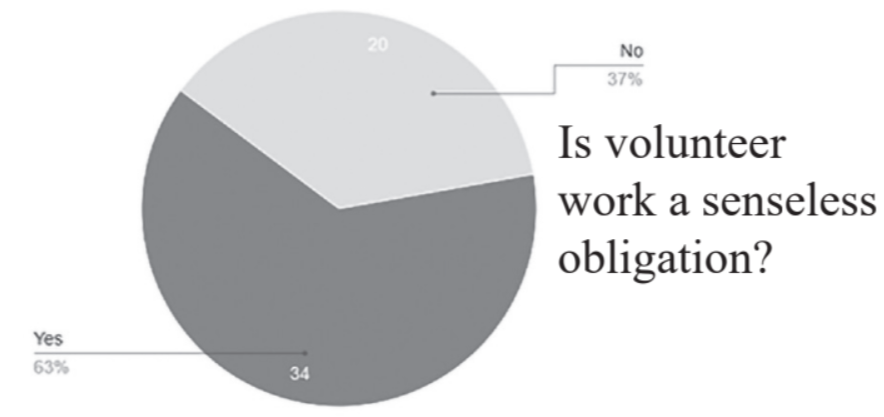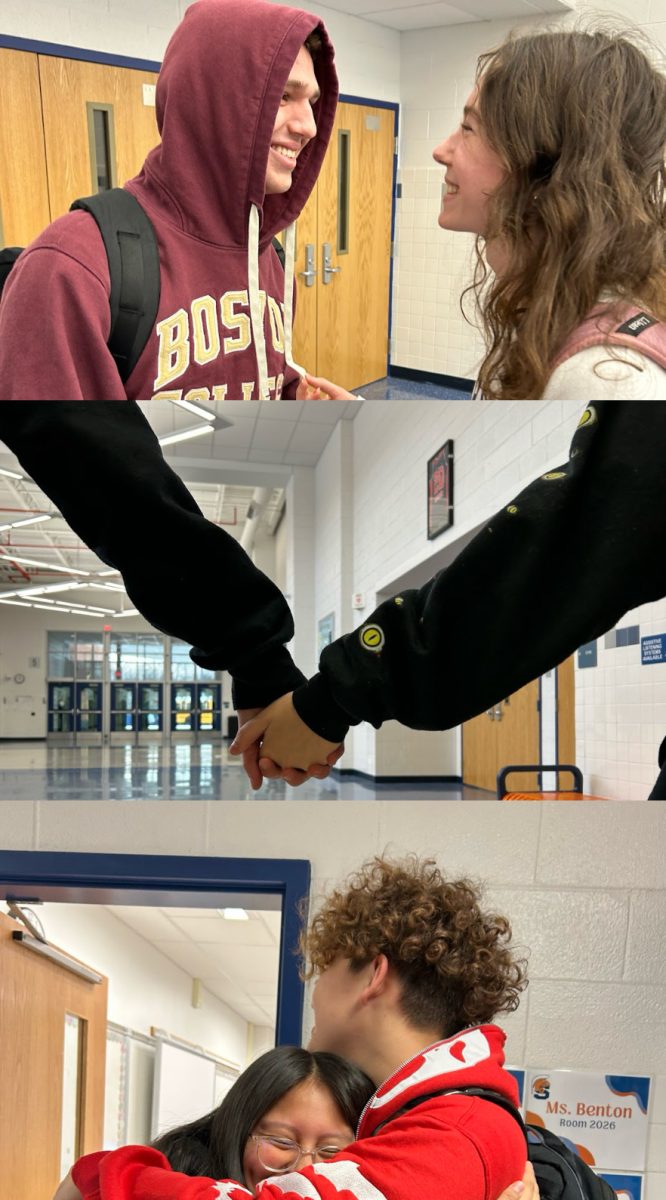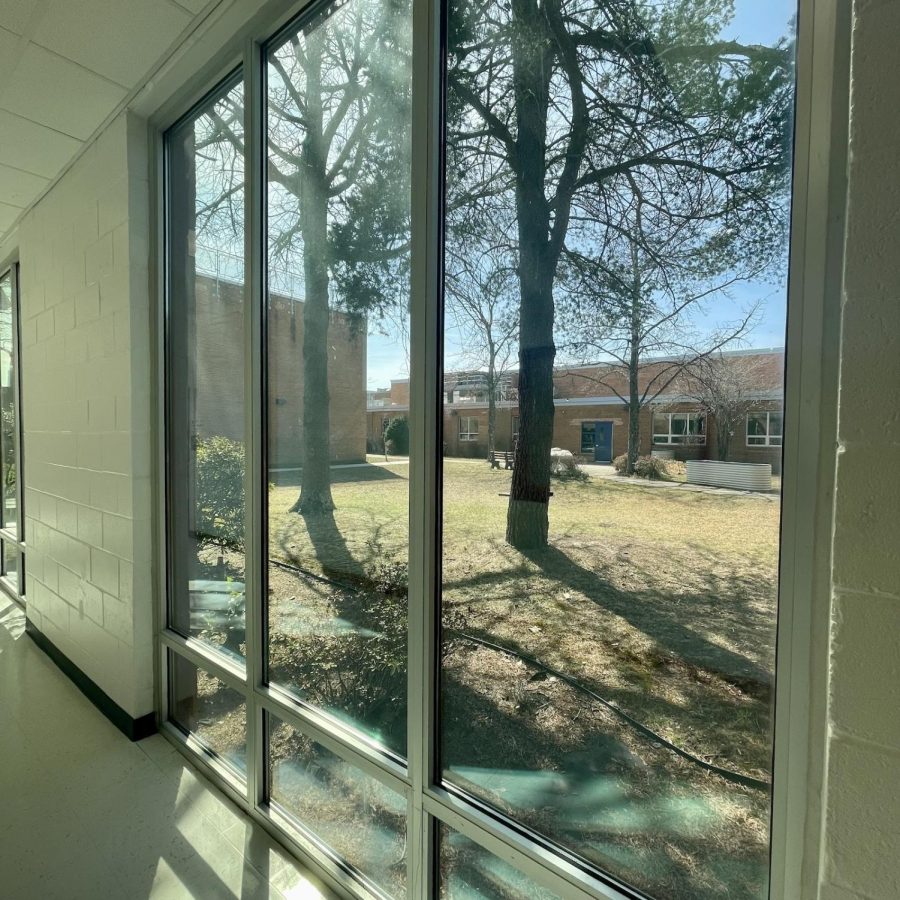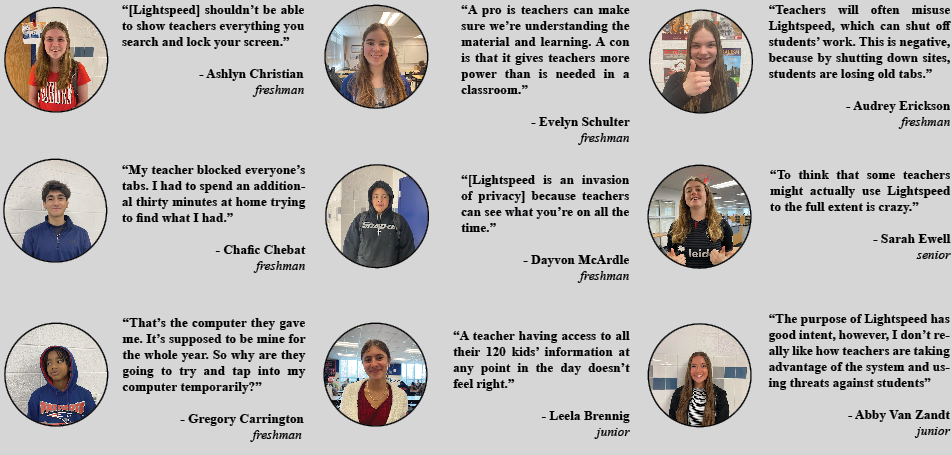For decades, volunteer work has been widely considered to be an important part of the college admissions process. The growing emphasis and competition surrounding volunteer work, however, has led many students to lose passion in the service they are participating in.
According to a recent poll conducted by The Oracle, a not-so shocking 60% of students view volunteer work as a “senseless obligation with no natural motives.” This is a depressing statistic relating to the moral aspect of community service. How has volunteer work gone from an honorable extracurricular to a “senseless” and passive one?
In past generations, high school volunteering was a point of pride for students. Parents reminisce to their children about their days volunteering at retirement communities, soup kitchens and animal shelters alongside their friends, feeling proud that they were able to assist their communities in an enjoyable way. Volunteering was not viewed as an act they had to participate in for college applications, rather something that could make a positive impact on their communities.
Long-standing volunteer organizations within the school which aim to get students involved with their communities and connected to volunteer opportunities still exist today, such as Key Club, UNICEF, Interact Club and honor societies, with high student involvement. It is wonderful to see such a substantial number of students participating in volunteering extracurriculars. College admissions officers are widely known to agree with this statement, which is something students have caught on to, especially in recent years as the admissions process grows more competitive.
Therefore, students often join such volunteer organizations with the sole incentive of getting to “put it on their college application.” These organizations often include a form of point system, where members can earn volunteer hours to satisfy club goals and requirements to reward students for their service. Such systems can leave students to passively wonder how they can “get points,” rather than actively wonder how they can make a difference.
With that, volunteer work becomes an afterthought. Is serving others with the sole purpose of enhancing college applications the new normal? This new volunteering culture must be mindful of what it is doing to young minds. Is society promoting a mindset in young students where they wonder “what’s in it for me?” every time they are in a position to be a helpful citizen?
These concerns raise an important question: where did the joy of merely helping people for the sake of doing good go? Is passionate community service an obsolete, old fashioned principle? This is not to say that all students are insincere with their volunteering, but rather to suggest the idea that some students are only incentivized to help others for the purpose of enhancing their own resumes. Relatively, some teenagers are becoming less selfless and more selfish over time.
Although current incentives may not align with society’s moral code, there is something to be said for whether it matters if the motivation has to be “right” to help others. For now, even at a seemingly higher rate than in decades past, teenagers should continue their humanitarian efforts, even if they do not necessarily care about the cause. As long as people in need are getting the help they need from the younger generation, humanity will thrive–even if morality suffers.
Putting on an act of kindness
Volunteering has lost its authenticity as students feel obligated rather than enthusiastic
Editorial
•
April 11, 2024
Photo courtesy of Taylor King
In a poll conducted on @wsoracle’s Instagram page, 63% of respondents considered volunteer work to be a senseless obligation while 37% disagreed with this opinion.
0
More to Discover













